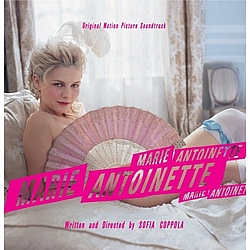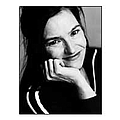Биография Marie Antoinette
Maria Antonia Josepha Johanna (Kirsten Dunst), affectionately known as Antoine, is the naïve, 14-year-old and youngest daughter of Austria's empress Maria Theresa. She is selected by her mother to marry her second cousin, the Dauphin of France, Louis XVI (Jason Schwartzman), and seal an alliance between the two enemy countries. On a small island in the middle of the Rhine, a symbolic crossing-over ceremony takes place. As per tradition, the soon-to-be Dauphine must relinquish anything belonging to the foreign court from which she comes; this includes not only all her clothing and personal effects, but also her friends, ladies-in-waiting, and even her dog. Emerging from out of a tent onto the French side of the river, Maria Antonia becomes the Dauphine Marie Antoinette. Marie Antoinette soon meets Louis XV (Rip Torn) and his grandson, her soon-to-be husband – the Dauphin. After very little time spent getting used to her new surroundings, Marie Antoinette and the Dauphin Louis are officially married. Toasts are drunk to their happy marriage and they are encouraged to produce an heir as soon as possible. That night, after the consecration of their marriage bed, the royal household leaves, waiting in anticipation. The next day it is reported to the King that 'nothing happened'. As if an increasingly fruitless marriage weren't problematic enough, Marie Antoinette is finding Versailles to be very different from Vienna. Courtly life at Versailles is stifling for the Dauphine, who is never without an unwanted entourage of servants and noblewomen who neither know nor care for her. The courtiers at Versailles disdain Marie as a foreigner – an Austrian, no less – and blame her for not having produced an heir. She is not allowed even to dress herself, and must take breakfast in a great hall where hundreds of nobles observe her and her husband eat sparingly from enormous displays of food. The Court in France is rife with gossip. The King's mistress, Madame du Barry (Asia Argento), is the least liked among the ladies at court, particularly because it is known that she was not previously allowed at court until King Louis made her a comtesse to make her appear "respectable" to her royal counterparts. Rumor also has it that Marie Antoinette has no love whatsoever for her husband; she is looked upon by many as a cold and distant Austrian, even though she is portrayed as being warm and affectionate to those around her. Marie Antoinette ruffles more feathers by defying the high formality of the French court. She accompanies her husband and his friends on hunting excursions, passing out food to them and occasionally to the animals, claps at the opera, and often snubs other members of the aristocracy and royal family. She receives a letter from her mother, Maria Theresa (Marianne Faithfull), the Holy Roman Empress, warning her that an unconsummated marriage is easily annulled and encouraging her to inspire the Dauphin to sexual fervour. That night, Marie Antoinette attempts to seduce her husband but her advances are rebuffed. Time passes in the same fashion and Marie Antoinette's mother continues to write to her giving advice on how to impress and seduce the prince louis; also telling her to stop snubbing Madame du Barry as this is akin to criticising the King's behaviour. The Court continues to snipe at Madame du Barry, criticising her fashion and her behaviour, demeaning her as a harlot whose title was bought for her by the King. Marie Antoinette gives in, for fear of falling out of favour with the King, since her marriage is not on solid ground. She finally condescends to speak to Madame du Barry, remarking at a reception that, "There are a lot of people at Versailles today." As she leaves with friends, the Dauphine remarks that those would be the last words she would ever say to du Barry. Marie Antoinette finally finds a handful of confidantes and begins to adjust to her new life. She finds solace in buying lavish gowns and shoes, eating elaborate cakes and pastries (produced for the film by Ladurée), and gambling with her ladies. The Dauphin and his brother go on a hunting excursion and Marie tells him that she will be humiliated if her sister-in-law, Marie Thérèse, becomes pregnant before her. Her husband tells her not to worry, that everything will go swimmingly. His Majesty tells his advisor that he has no intention of breaking the alliance with Austria and sends a doctor to see Marie and Louis XVI. Pressure continues on all sides for Marie to become pregnant, but the Dauphin seems unwilling to do more than sleep beside her. Marie Antoinette's sister-in-law eventually gives birth to a baby boy, Louis-Antoine. As France's political and economic situation worsens, Marie Antoinette becomes more detached from life outside the palace and her lifestyle grows more hedonistic and decadent. One night, she sneaks out with her husband and friends to attend a masked ball where they continue in their frivolity. Louis XV passes away and Louis XVI is crowned as the new King of France. A few years later Marie celebrates her 18th birthday with a lavish party. She continues her spending spree and remains indifferent to the growing poverty and unrest among the French working class. The new King is young and inexperienced and begins spending more money on foreign wars, sending France even further into debt. Marie Antoinette's brother Holy Roman Emperor Joseph II (Danny Huston) comes to visit, counselling her against her constant parties and associations, though she fails to heed his advice. Joseph then meets the King at the Royal Zoo and (in the presence of an African elephant using its trunk to play with the King's buttons) explains to him the "mechanics" of sexual intercourse in terms of "key-making" – as one of the King's favourite hobbies is making keys. That night, the King and Marie Antoinette make love for the first time. On December 18, 1778, the young queen gives birth to a girl, Marie Thérèse. Although she would prefer to breastfeed the child herself, this is not socially acceptable. The baby princess grows older and Marie Antoinette spends much of her time at the Petit Trianon, her own private sanctuary on the grounds of Versailles. It is also at this time that Marie Antoinette enters into an alleged affair with Count Axel von Fersen (Jamie Dornan). France continues to subsidize the American Revolution, despite the enormous expense. Ironically, the Revolution that worsened the plight of the French peasantry soon inspired them to start one of their own. Food shortages grow more frequent, as do riots in Paris. Marie Antoinette's image with her subjects has completely deteriorated at this point. Her luxurious lifestyle and apparent callous indifference to the common people result in unflattering and obscene political cartoons and earn her the title "Queen of Debt". The Queen is now a mother and has begun to mature. She focuses less on her obligations as a socialite and more on her family, and tones down her opulent lifestyle, including a decision to stop purchasing diamonds. A few months after her mother's death in November 1780, Marie Antoinette gives birth to a baby boy, Louis-Joseph, the new Dauphin. A third child, Sophie-Béatrix, is born but dies before her first birthday, and the royal couple are shown watching the tiny coffin being taken for burial. The French Revolution comes into full fruition and an angry mob begins a march from Paris to Versailles. As most of the nobility flees the country, the royal family resolves to stay. The rioting sans-culottes reach the palace and the King and Queen are forced to leave the following morning. The last image of the movie is a shot of the royal couple's room, destroyed. Unmentioned in the film are the royal couple's later incarceration, trial and execution. The film's soundtrack contains songs by 1980s New Wave and post-punk bands such as New Order ("Ceremony"), The Cure ("All Cats Are Grey", "Plainsong"), Siouxsie and the Banshees ("Hong Kong Garden (With Strings Intro)"), and Bow Wow Wow ("Fools Rush In", "Aphrodisiac" and "I Want Candy") as well as newer material by The Strokes, Aphex Twin, Dustin O'Halloran, and The Radio Dept. Some scenes, however, utilize Baroque music, principally composed by Jean-Philippe Rameau. Three of his pieces are in the film: Les Indes Galantes - "1st Menuet Pour Les Guirries et les Amazones, 2nd Menuet" Performed by William Christie & Les Arts Florissants Courtesy of Harmonia Mundi France (P) 1991 Castor & Pollux - "Tristes apprêts, pâles flambeaux"" Performed by Agnès Mellon (soporano) with William Christie & Les Arts Florissants Courtesy of Harmonia Mundi France (P) 1993 Platée - "Aux langueurs d'Apollon" Performed by Carolyn Sampson (soprano) with Jeffrey Skidmore & Ex Cathedra Courtesy of Hyperion Records, Ltd. The film also features "Les Barricades Mystérieuses", composed by François Couperin. 2. There's also a 90's French pop band called Marie Antoinette. Discography (at least all that I know of): - Superqualifragilistic compilation cassette on Lutecia Garden/Nessie records - Toutes Ces Choses" 1992-1996 CD on Z and Zoey Records
Тексты песен Marie Antoinette
Оставить комментарий
Что вы думаете об исполнителе Marie Antoinette? Напишите ваш комментарий.
Альбомы Marie Antoinette
| Title | Release | ||
|---|---|---|---|
| 1 | Marie Antoinette |












